Focusing on quality of life for person-centred care planning in care homes
Around 400,000 older people live in care homes in England. Care for these people could be improved by focussing on their quality of life.
Quality of life is about understanding the individual’s general wellbeing and ability to do what matters to them. A care plan informed by quality of life would include personalised goals based on where the person is and what they want to do. Such approach to care planning could therefore be more centred on the person and their particular needs.
Quality of life in health and care is assessed by standardised outcome measures. These outcome measures can be used to evaluate how care is delivered. They can also be used to monitor and assess how care is progressing and to make adjustments.
Project aims
In this project we are developing and piloting approaches to care planning in care homes which focus on the quality of life of residents. We are working with residents, their families, care staff, managers and policy makers.
We are exploring how 2 outcome measures – the Adult Social Care Outcomes Toolkit (ASCOT) and the ICECAP capability measures – can be used to plan quality of life-based care.
We are working with care homes to understand how they use tools like ASCOT and ICECAP to measure residents’ quality of life and inform their care planning process. Our aim is to see how helpful these tools are, what gets in the way of using them, and how they can support better, more person-centred care.
What we did
So far we have:
- Reviewed existing research about care planning for older people in care homes and talked to professionals working in social care. This helped us understand how care planning works and what helps or hinders person-centred care
- Worked with people in the care sector to develop a set of principles and best practice guidelines for care planning
- Worked with residents’ families and friends to develop information resources to support their involvement in care planning
What next?
We’re supporting several care homes across England to try out the approaches using the ASCOT tool or the ICECAP questionnaires in their care planning, and we’re evaluating how well it works in practice. If this goes well, we hope that this approach can be widely adopted across the care home sector.
Ultimately we want to improve the care of older people in care homes, giving them a better quality of life.
This work is part of the Wellbeing in Care Homes research project led by the ARC Kent, Surrey and Sussex, in collaboration with ARC North West Coast, ARC West, ARC Oxford and Thames Valley and ARC North Thames. It is part of the NIHR ARC National Priorities Programme for Adult Social Care and Social Work.
Papers
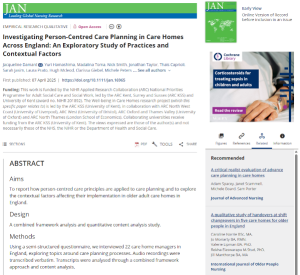
Investigating Person-Centred Care Planning in Care Homes Across England: An Exploratory Study of Practices and Contextual Factors
Read the paper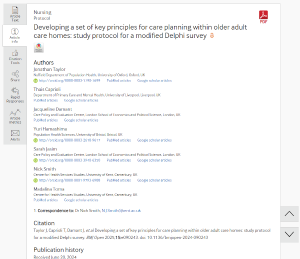
Developing a set of key principles for care planning within older adult care homes: study protocol for a modified Delphi survey
Read the paper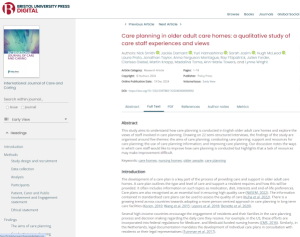
Care planning in older adult care homes: a qualitative study of care staff experiences and views
Read the paper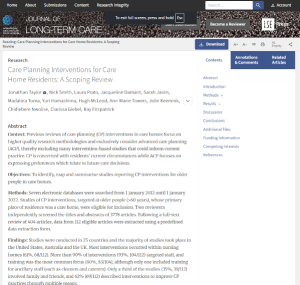
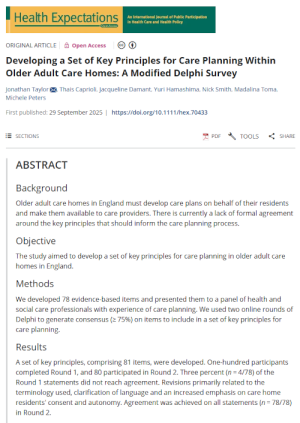
Developing a Set of Key Principles for Care Planning Within Older Adult Care Homes: A Modified Delphi Survey
Read the paperLead collaborators
- Julian Forder, University of Kent
- Ray Fitzpatrick, University of Oxford
- Martin Knapp, London School of Economics